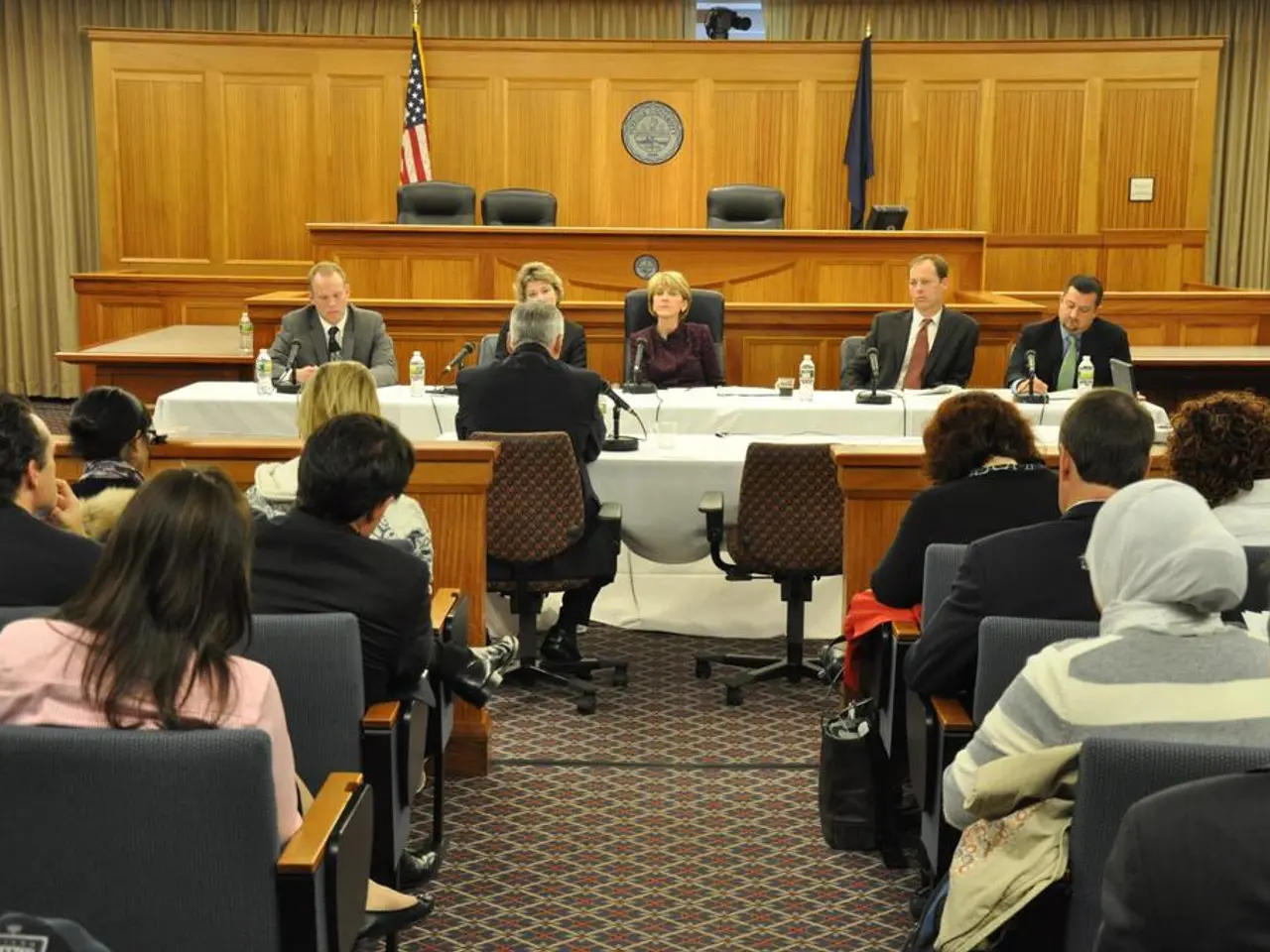European novice from Germany seeks progress for continent
Updated Take on Merz's European Agenda
Prepares for a European comeback, Merz eyes tough migration policies, promotes leadership, and tackles trade disputes.
In a fresh start at the Brussels summit, Friedrich Merz sets his sights on revitalizing Germany's influence within the EU. Stepping into his new role, Merz is determined to steer the nation back to the forefront of European policy. "I want to contribute towards ensuring Europe's success in the coming years," he declared.
Tough Migration Policies Expected
Flaunting a hardline approach, Merz met with fellow EU leaders before the summit concluded, aiming to tighten migration policies. Together with Italy’s Giorgia Meloni, Denmark’s Mette Frederiksen, and the Netherlands' Dick Schoof, Merz deliberated on enhancing return policies.
Germany had reintroduced border controls at all German external borders in mid-2024. This year, the Merz government strengthened these controls further and ordered the rejection of asylum seekers at the border, although neighboring countries such as Poland and Luxembourg have expressed reservations.
Controversy Surrounds Israel-EU Relations
The subject of Israel's controversial Gaza policy divided member states for months. Upon arriving in Brussels, Merz faced sharp criticism from European leaders, most notably Spain's Pedro Sánchez. Sánchez accused Merz of applying "double standards" when he announced Iraq's censure while opposing harsher penalties against Israel.
The EU is currently evaluating how to respond to Israel’s actions in Gaza, which have been deemed a violation of established cooperation principles. However, Merz firmly rejects the advocated consequences, such as suspending or terminating the EU-Israel Association Agreement, assuring that it is not an option for his government.
Trade Dispute Likely to Test Merz's Mettle
Navigating the ongoing trade dispute with the USA promises to be the first significant test for Merz. Despite vastly different economic interests, the EU continues to strive for united front solidarity. The matter of new high U.S. tariffs looms, threatening to stifle almost all EU exports to the United States if no agreement is struck by July 9. Concurrently, the EU would impose tariffs on U.S. imports.
Further Sanctions on Russia Expected
Placing emphasis on diplomatic pressure, Merz seeks to negotiate an end to the attack on Ukraine by utilizing economic sanctions against Russia. His efforts mirror a longstanding resolve, evident since his visit to Kyiv at the beginning of his term in May. The summit will likely decide on an additional package of Russia sanctions, focusing on the country’s financial and energy sectors.
A Fresh Chapter for German-French Relations
Merz faces the vital task of integrating well into the group of heads of state and government, many of whom he has already met. He places exceptional importance on forging a strong bond with French President Emmanuel Macron, a relationship that his predecessor Olaf Scholz never successfully established. The success of this partnership could play a significant role in Merz's broader vision of propelling Europe forward.
- Merz, in his European agenda, is not only focused on economic and social policy but also aims to address war-and-conflicts, specifically the ongoing attack on Ukraine, by employing policy-and-legislation such as implementing further sanctions on Russia.
- Aside from economic issues, Merz has shown interest in crime-and-justice matters, as conflicts surrounding Israel-EU relations have become a subject of debate, with Merz facing criticism from European leaders for his stance on the contentious Gaza policy.
- In the realm of politics and general-news, migration continues to be a significant concern, with Merz advocating for tough migration policies, collaborating with EU leaders like Giorgia Meloni, Mette Frederiksen, and Dick Schoof to enhance return policies, leading to contentions with neighboring countries.





